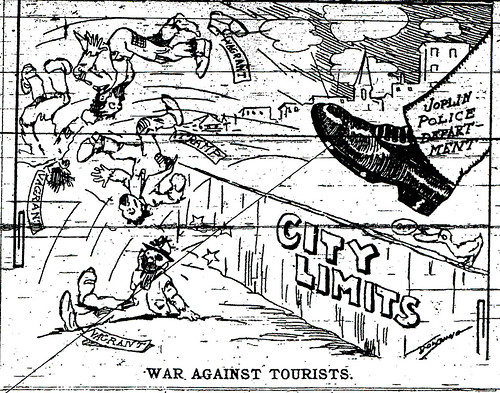In mid May of 1911, visitors arrived on the outskirts north of Joplin. Their presence immediately brought about disapproval and a visit from the Joplin police. The police had been notified of the arrival of a “tribe of Gypsies” at what was called their “usual camping ground.” Gypsies or Roma, or Romani, as they presently prefer to be called, were not welcome visitors to Joplin. The Joplin News Herald, captured the feelings of the Joplin police chief, Joe Myers, who claimed that most (but not all) of the gypsies were of the type who would do anything but work for a living. Chief Myers added, “It is our intention to make life such a burden for them that they will not want to remain here long.”
One reason for the lack of hospitality came from the Joplin police department’s claim that a month long visit by the gypsies the year before had been accompanied by an explosion of “petty robberies, begging and small crimes.” The new arrivals hardly had time to unhitch their horses before the police arrived to inform them that no license would be granted to them to fortune tell. The News Herald reporter was told that the police force was expected to “make life miserable for them generally.”
The gypsies eventually packed up and departed Joplin only to face the likelihood of similar treatment in the next town. Their treatment at the hands of the Joplin police was not uncommon; tramps, transients, and migrant workers often faced the same fate upon arriving in town. Loafers, idlers, and hoboes were not welcome in many towns across the country, including Joplin. The gypsies that sauntered into Joplin were fortunate they were not sent to the city’s work house to break rocks like so many tramps and vagrants had before. Instead, these free spirits were encouraged to move on, lest an anticipated crime wave break out.
Source: Joplin News Herald, 1911.

